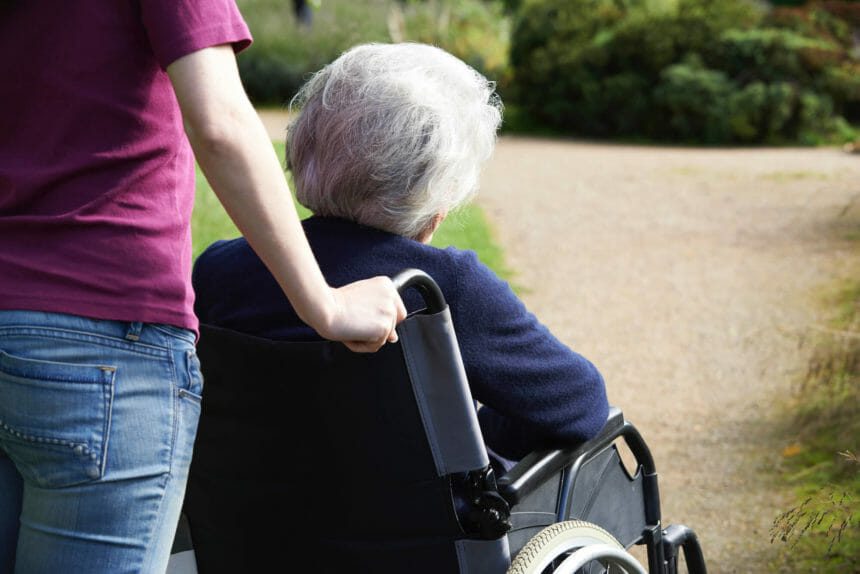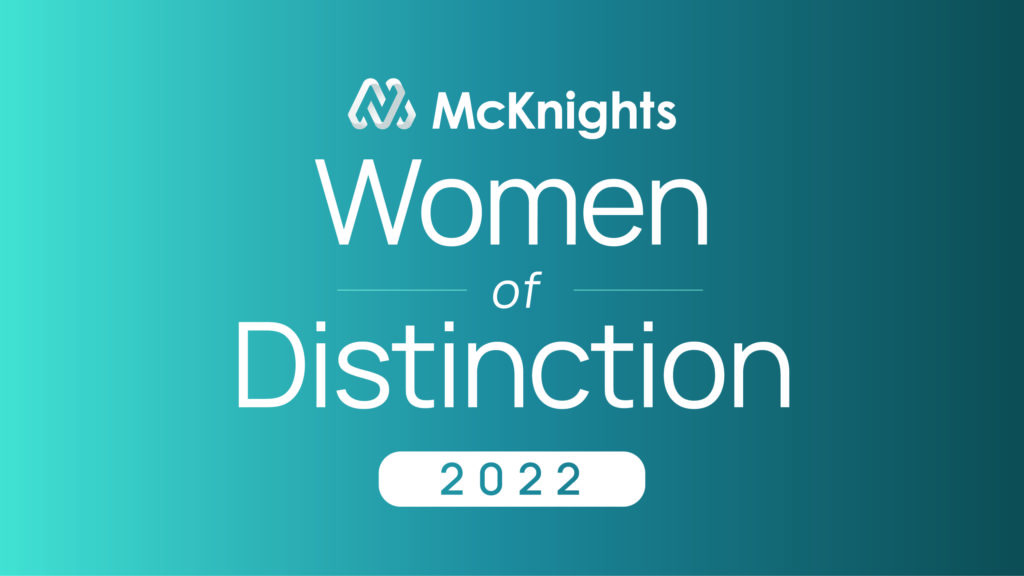
As the warm weather of summer slips away, Pennsylvania long-term care providers see the same happening with their opportunities for outdoor visitation.
During a press conference Wednesday on how providers, residents and families are grappling with state and federal reopening guidelines, Pennsylvania Health Care Association President and CEO Zach Shamberg said that as of last week, Pennsylvania still was one of 10 states restricting visitation in some way on a statewide basis.
Like other states, Pennsylvania assisted living communities, personal care homes and nursing homes went into lockdown in mid-March as the coronavirus spread across the country. Visitation ceased, communal dining became individual dining in resident rooms, and group activities were canceled. Providers moved to alternative strategies, including hallway activities and electronic means of facilitating interaction with family members.
In May, Shamberg said, there “appeared to be a light at the end of the tunnel” in terms of visitation.
“Policies were released. Guidance was updated. And the idea of reopening for long-term care became very real,” he said. “However, the one-size-fits-all approach that was ultimately employed here in PA, in which any providers were forced to wait for up to 28 days before visitation could resume in their communities, and one positive case of COVID-19 could trigger an automatic facility-wide shutdown and not lend itself to facilitating meaningful in-person visits.”
Meanwhile neighboring states — including Ohio, West Virginia, Delaware, Massachusetts, New York and New Jersey — began to reopen, if only for outdoor visitation. Shamberg questioned why one positive COVID-19 case should trigger an automatic shutdown, because facilities have the ability to cohort residents and test on a weekly or monthly basis.
Today, Pennsylvania has compassionate caregiver programs being introduced, in which residents can designate a caregiver to enter a facility to visit. Essential family caregiver legislation is being drafted in both the state House and the Senate. And federally, the Centers for Medicare & Medicaid Services issued revised guidance Sept. 17 providing recommendations on ways nursing homes can safely facilitate visitation.
“In essence, there is a strong push coming from both our state and federal government to open our doors once again. So how do providers strike the balance?” Shamberg said, adding that research shows that community spread of the virus has a direct effect on coronavirus outbreaks in long-term care facilities. “I fear we may have missed our opportunity to facilitate visitation outdoors, and providers will now be asked to open their doors and take a real risk in allowing family members and community members to enter their buildings.”
Megan Campbell, a member of the boards of directors for PHCA and the National Center for Assisted Living, heads Wexford, PA-based IntegraCare, a senior living provider operating 13 communities in Pennsylvania, Maryland and Virginia. She said reopening communities has been an “arduous process.”
Campbell said IntegraCare, like many senior living providers, is working on “unwinding” its lockdown procedures to return to some semblance of normalcy for residents, their families and employees, all while following ever-changing state and federal guidance on mitigating the spread of COVID-19.
“It’s not business as usual in any way, shape or form,” she said, adding that personal protective equipment, testing and staffing demands redirect valuable resources as communities try to keep residents safe.
Shamberg said that at the end of June, Pennsylvania Gov. Tom Wolfe directed $245 million in federal CARES Act dollars to nursing homes, with an additional $50 million going to assisted living and personal care home providers.
Shamberg said PHCA has called for prioritization of long-term care in receiving PPE and testing equipment since the beginning of the pandemic.
“As providers are hoping to reopen, where they’re being asked to reopen across the state, I would just reiterate that call, that supply of PPE and supply of testing, the public-private partnerships that have been built between the state and outside entities,” he said. “We hope that providers can get the support they need, not just to keep their residents and staff safe, but so they can facilitate this in-person visitation.”




